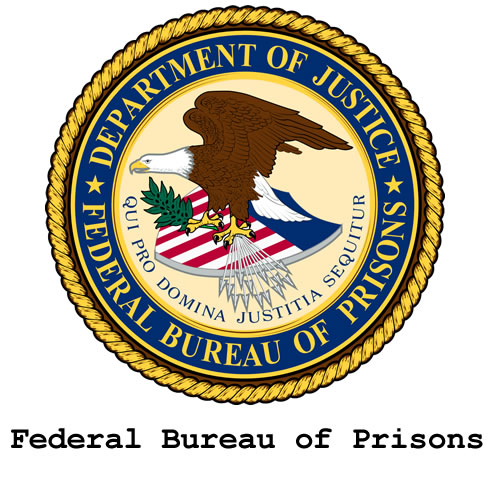
Aug 24, 2016 | Blog, Forfeiture, News
Innocence until proven guilty should also mean an individual isn’t punished until guilt is established in court. But in Michigan and other states, a suspect can lose property and cash without ever even being charged with a crime.
A package of bills voted unanimously out of committee would establish a higher threshold for civil forfeitures. But it should be toughened to require a conviction before property is taken.
A new report released jointly by the conservative Mackinac Center for Public Policy in Midland and the liberal Michigan ACLU clearly illustrates the problem with forfeitures. That the two often ideologically opposed organizations can find unity on this issue makes the case that reform is needed much stronger.
As the joint report notes, under criminal forfeiture property can’t be kept by government until the owner’s guilt is established beyond a reasonable doubt.
But the standard is much lower for civil forfeitures. State law allows law enforcement to take property merely suspected of attached to an illegal activity, and without the defendant ever having his or her day in court. The requirement is only that there be a “preponderance of evidence” that a crime has been committed.
Consequently, many people have been forced to pay huge fines and fees to retrieve their possessions, even though they were never convicted or even charged with a crime.
“When the government can transfer property from citizens to the state without proving wrongdoing, there is clearly something wrong,” said Jarrett Skorup, a policy analyst with the Mackinac Center and co-author of the report. “The foundation of good government is private property rights and the rule of law — civil forfeiture violates both of these.”
A recent study from a national group, Fix Forfeiture, concluded Michigan’s forfeiture laws are among the most abusive in the country.
Local law enforcement agencies are using civil forfeiture to supplement their budgets and pay for specific programs. That provides a perverse incentive to seize property.
From 2009 to 2013, Michigan law enforcement agencies reported $123.5 million in drug-related forfeiture proceeds.
At least another $149 million was taken by Michigan law enforcement agencies from 2001 to 2008, an average of about $18 million per year.
That means more than $270 million has been seized from Michigan residents since 2001. Since these figures only include forfeitures related to drug crimes, the total value of property seized is likely far greater.
The pending Michigan bills raise the burden of proof standard for determining when property is seized to “clear and convincing evidence,” and requires police agencies to track and report seizures. That should result in fewer takings.
But they do not require a conviction before a seizure, and that is a major flaw that must be corrected. And they also allow agencies to continue the practice of using seizures to fund their operations.
Still, this package is a good start. Efforts should be made to improve the bills to better protect civil liberties.
11:30 p.m. EDT October 5, 2015

Aug 19, 2016 | Blog, News
MEMORANDUM FOR THE ACTING DIRECTOR
FEDERAL BUREAU OF PRISONS
Deputy Attorney General Sally Yates instructed officials in a memo Thursday to either decline to renew the contracts for private prison operators when they expire or substantially reduce the contracts scope. The goal, Yates wrote, is reducing and ultimately ending our use of privately operated prisons.
Between 1980 and 2013, the federal prison population increased by almost 800 percent, often at a far faster rate than the Federal Bureau of Prisons could accommodate. In an effort to manage the rising prison population, about a decade ago, the Bureau began contracting with privately operated correctional institutions to confine some federal inmates.
Since then, for the first time in decades, the federal prison population has begun to decline, from nearly 220,000 inmates in 2013 to fewer than 195,000 inmates today.
Private prisons served an important role during a difficult period, but time has shown that they compare poorly to our own Bureau facilities. They simply do not provide the same level of correctional services, programs, and resources; they do not save substantially on costs; and as noted in a recent report by the Department’s Office of Inspector General, they do not maintain the same level of safety and security. The rehabilitative services that the Bureau provides, such as educational programs and job training, have proved difficult to replicate and outsource-and these services are essential to reducing recidivism and improving public safety.
To Read The Memorandum Click The Link Below
MEMORANDUM FOR THE ACTING DIRECTOR FEDERAL BUREAU OF PRISONS

Aug 18, 2016 | Blog, Criminal Defense Attorney Michael Komorn, News
Attorney General Eric Holder’s speech regarding dropping mandatory minimums for many drug crimes is already making an impact.
Read the letter from the DOJ

Aug 7, 2016 | Blog, News
US police are using a flawed scientific test in drugs busts that gives ‘false positives’ to strongarm citizens into plea bargaining.
As if America’s highly-publicised “war on drugs” were not already facing a credibility gap, two US superior court judges – one in Washington, DC, another in Colorado – are raising questions about whether the federal Drug Enforcement Agency (DEA) and police departments are using “pseudo-scientific” drug identification methods to bust hundreds of thousands of suspected drug users, many of them inner-city minority kids. A flawed drug test means that innocent people are being locked up as suspects, deprived of their due process rights, and then pressured to accept plea bargains, whether they’re guilty or not.
At issue in the growing controversy is whether current drug identification methods, including the widely-used “Duquenois-Levine test“, can verify – and how accurately – that the substance police seize during an arrest is the one they say it is. The test, a variation on simple techniques first employed in the 1930s, exposes the suspect substance to a liquid chemical, and if it turns a certain colour – purple, in the case of marijuana – it’s deemed likely to be the real thing.
But according to leading defence experts, including Heather Harris, a highly-trained chemist who’s gone head-to-head with DEA lab “experts” and won, there are hundreds of legal substances, many of them readily available commercially, or in nature, that would normally turn purple under the exact same test conditions. Which means the Duquenois test, while ruling marijuana “in” as one theoretical possibility, perhaps, can’t confirm its presence, either – at least, not “beyond a reasonable doubt”, the legal threshold required for a conviction.
But that hasn’t stopped police from using the test widely. In one recent case in Florida, police descended on a middle-aged woman bird-watcher in a public park and busted her after noticing a leafy substance in a package in her purse, which later turned out to be sage she’d purchased as incense for her home. The woman tried to inform the police about sage’s medicinal and spiritual uses, and even Googled the manufacturer’s website on her laptop, which matched the branding on the package. But the police busted her anyway, after the substance turned purple in a lab test. She’s now planning to sue for damages.
In fact, the problem of “false positives” in drug tests isn’t just limited to substances that appear to resemble marijuana. In Canada, the owners of a family-based chocolatier business were fingered as dangerous drug dealers by a Duquenois field test, and found themselves in jail.
The chocolate case may seem extreme but it’s happening all across America, experts say. That’s, in part, because of the pay incentives involved. Police can earn large amounts of overtime pay by conducting routine drug busts, especially after hours; they even have a name for the practice: “collars for dollars”. In New York, where possession of less than an ounce of marijuana was decriminalised some years ago, marijuana drug busts have not declined; they’ve skyrocketed – from 5,000 to roughly 30,000 annually – in part, because police find the practice so lucrative.
Of course, Duquenois-Levine is not the only DEA-approved drug test available. A far more conclusive test, known as GC/MS, using far more advanced techniques, can also be performed, but defendants and even many lawyers are rarely aware that they can insist on such a test, or have much incentive to do so.
And, in fact, even the GC/MS test is increasingly under fire, because the DEA doesn’t have standard lab protocols to govern its use, and has angered judges, including those in Washington and Colorado, by overstating the test’s reliability in court. In one recent case, a Colorado superior court judge threw out all of the DEA’s testimony in a drug case after its witness, under cross-examination, failed to demonstrate that the GC/MS testing conducted at one of its 18 national labs was reliable. It’s a legal precedent that has the DEA reeling, experts say.
Of course, many people arrested for drug use and possession are undoubtedly guilty as charged – how many is unclear, though, because plea bargaining is so commonplace. But using manifestly flawed drug identification tests to charge defendants, or pressure them to plead guilty, is hard to square with a defendant’s right to due process. And the DEA and local police, by relying on such methods, are in danger of damaging even their “good” cases, making a further mockery of the “war on drugs”, while leaving ordinary citizens more at risk than ever.
Stewart J Lawrence and John Kelly
Thursday 4 August 2011 16.30 EDT
https://www.theguardian.com/commentisfree/cifamerica/2011/aug/04/marijuana-flawed-test

Jul 9, 2016 | Blog, News
Gary Johnson believes the tensions between police and minorities that led to two high-profile police shootings and the deaths of five Dallas police officers has a root cause: The long-running war on drugs.

The libertarian nominee for president did not directly tie the drug war to the shooting deaths in Minnesota and Louisiana by police or the sniper killings of five officers in Texas this week. But poor relations between police and African-Americans stems from the criminalization of drug use, he said.
“The root is the war on drugs, I believe. Police knocking down doors, shooting first,” Johnson said in an interview Friday in Washington. “If you are (black and) arrested in a drug-related crime, there is four times more likelihood of going to prison than if you are white. And shooting is part of the same phenomenon.”
“That’s the common thread. Shootings are occurring with black people, black people are dying,” he added. “This is an escalation.”
The former Republican governor of New Mexico is pitching a complete rewrite of the nation’s drug policy as part of his underdog run for the presidency alongside his running mate, former Massachusetts GOP Gov. Bill Weld.
Johnson wants to legalize marijuana and find other ways to deal with harder drugs than long periods of incarceration.
He said that will soon happen, predicting that California will vote this fall to legalize marijuana and President Barack Obama will remove cannabis from its listing as a Class 1 drug. “I think Obama’s going to do that going out the door,” Johnson said.
“The focus on drugs needs to be as a health issue, not a criminal justice issue. It can be illegal but does it need to be criminal? Do you need to go to jail for drugs?” Johnson said. “I do believe that the root of the militarization, knocking on doors, is a drug war phenomenon.”
The laid-back libertarian, dressed in jeans and an open-collared button-down in a hotel dining room, declined to join Republicans in criticizing Obama for pointing to “powerful weapons” this week as a cause of violence between police officers and minorities. But Johnson said the focus on assault rifles is misguided.
“That is a category of rifle that contains 30 million rifles. If you ban those rifles tomorrow and said hand ‘em in,” only half of the weapons would actually be turned over, Johnson said. “And we’re going to have a whole new criminal class of people.”
Johnson said that as president he’d be open to proposals designed to keep guns out of the hands of terrorists and the mentally ill. But he said he’d seen no such workable proposals in Congress, despite unsuccessful attempts by both Democrats and Republicans.






